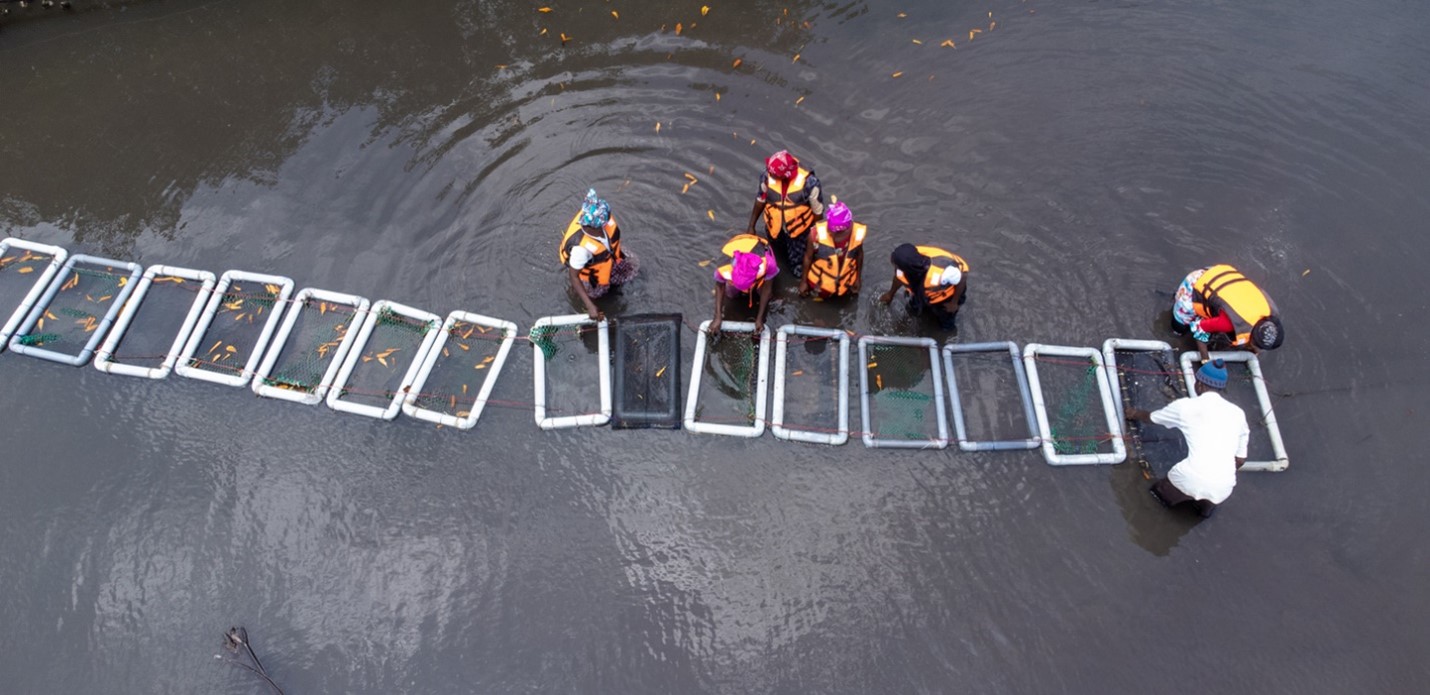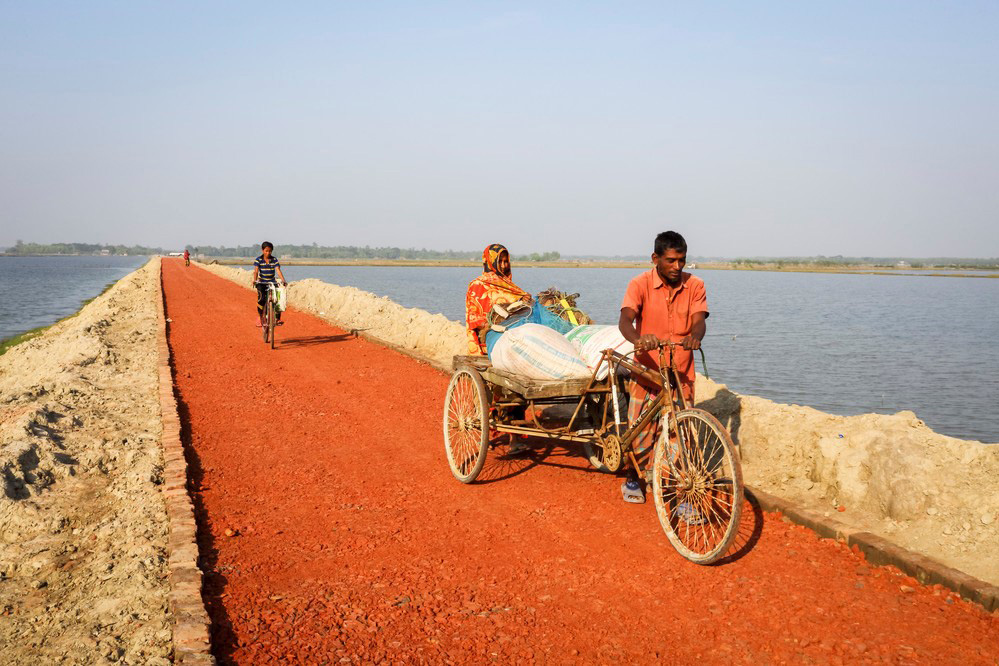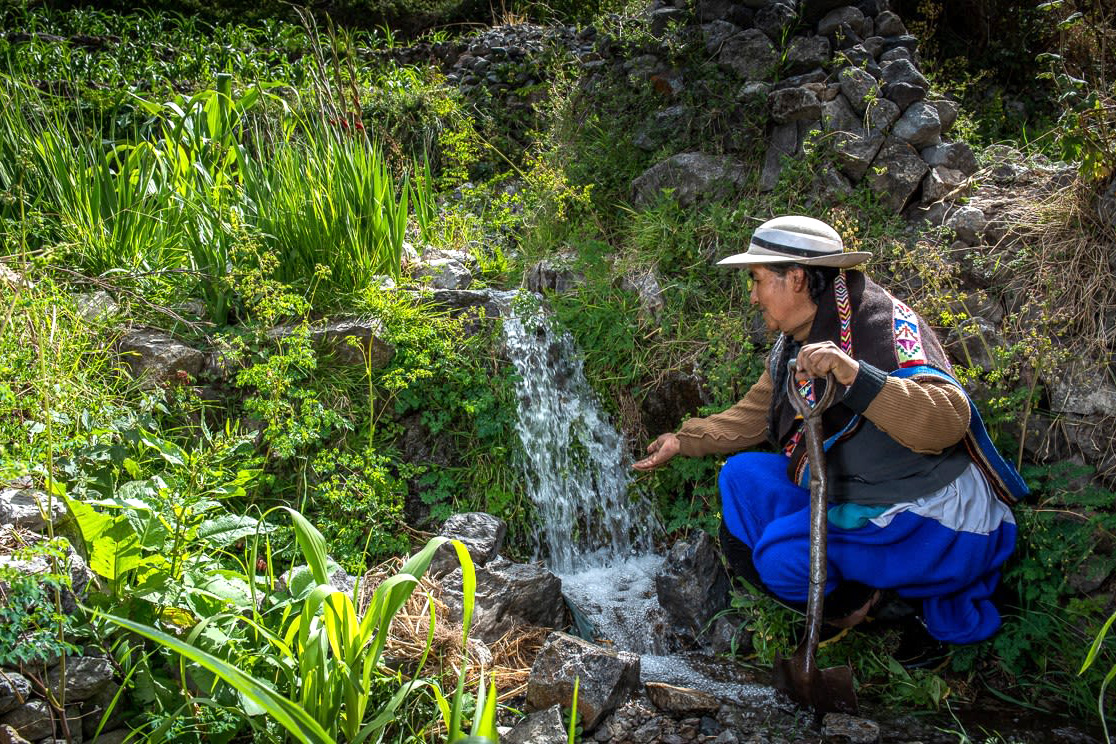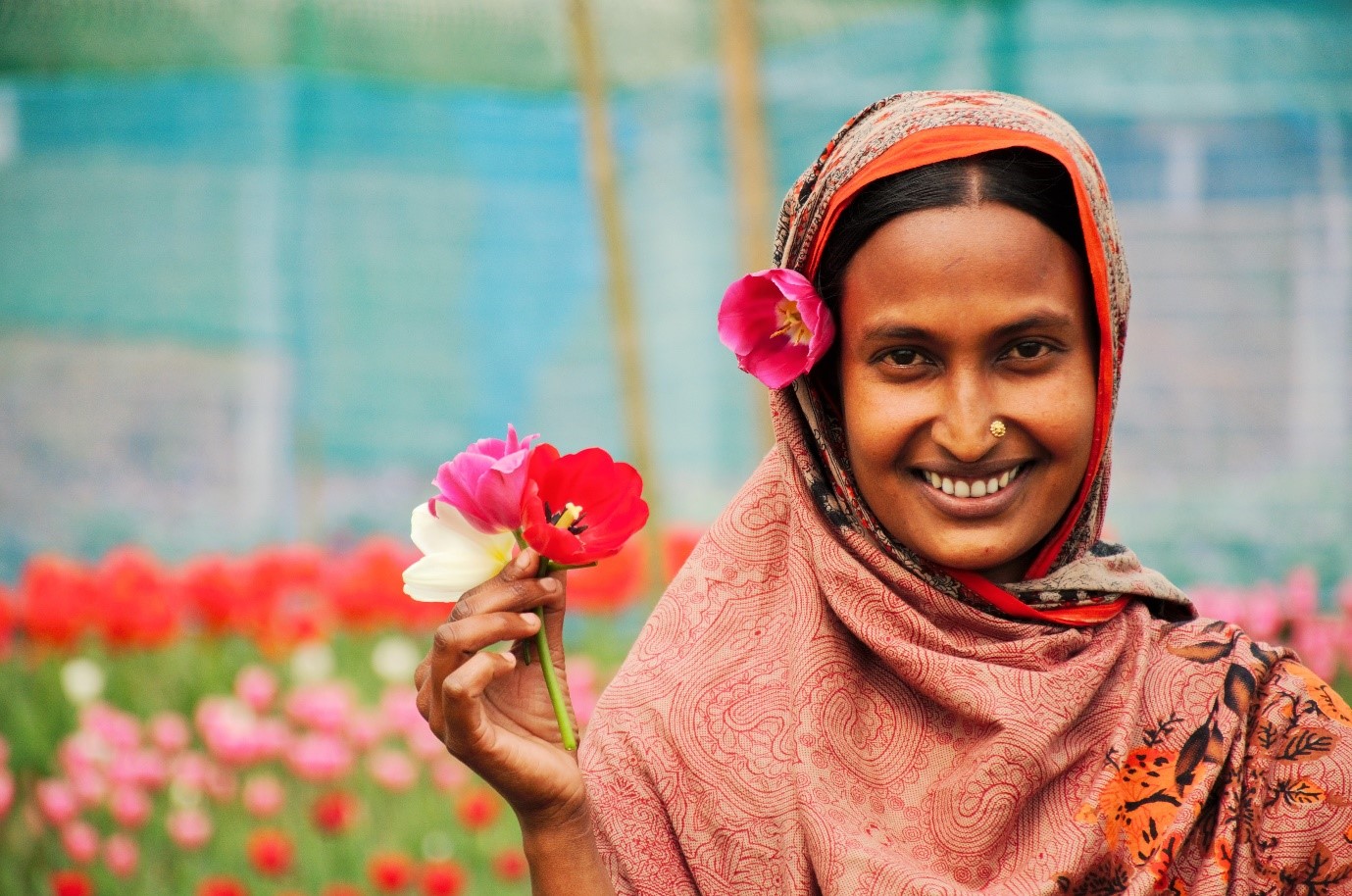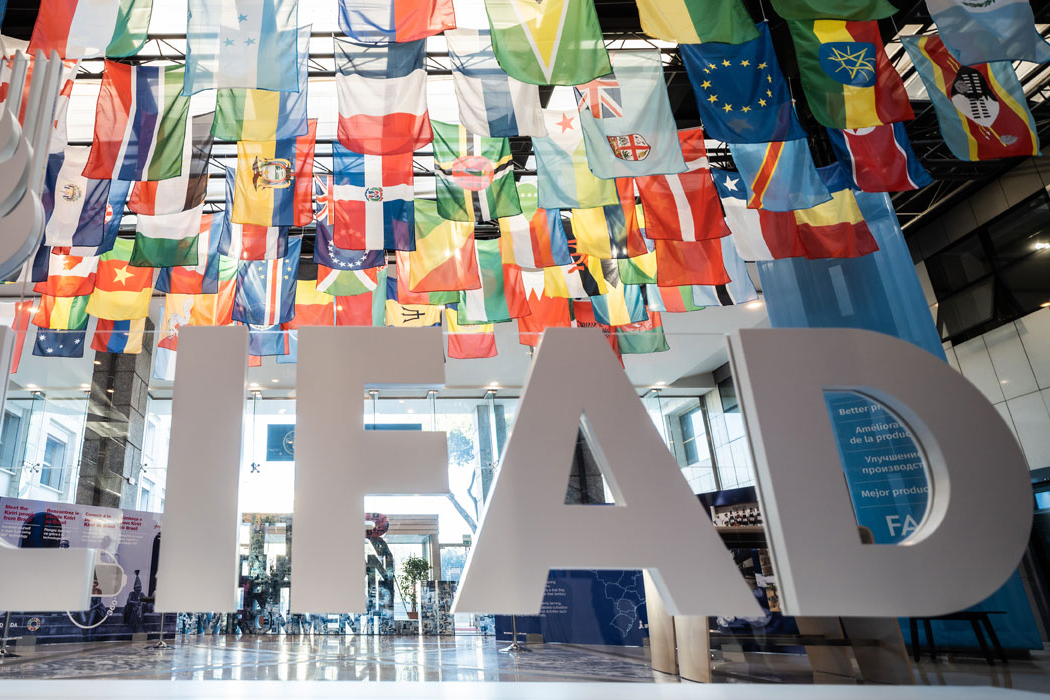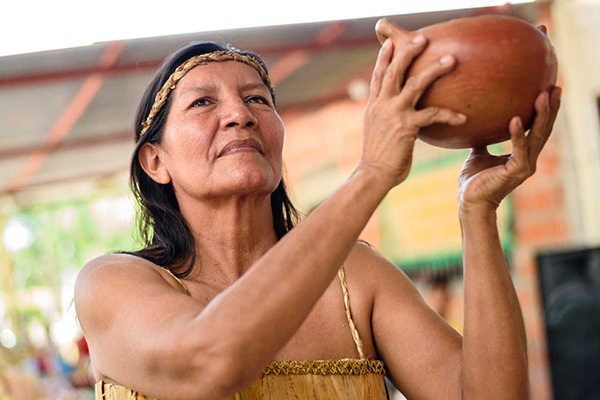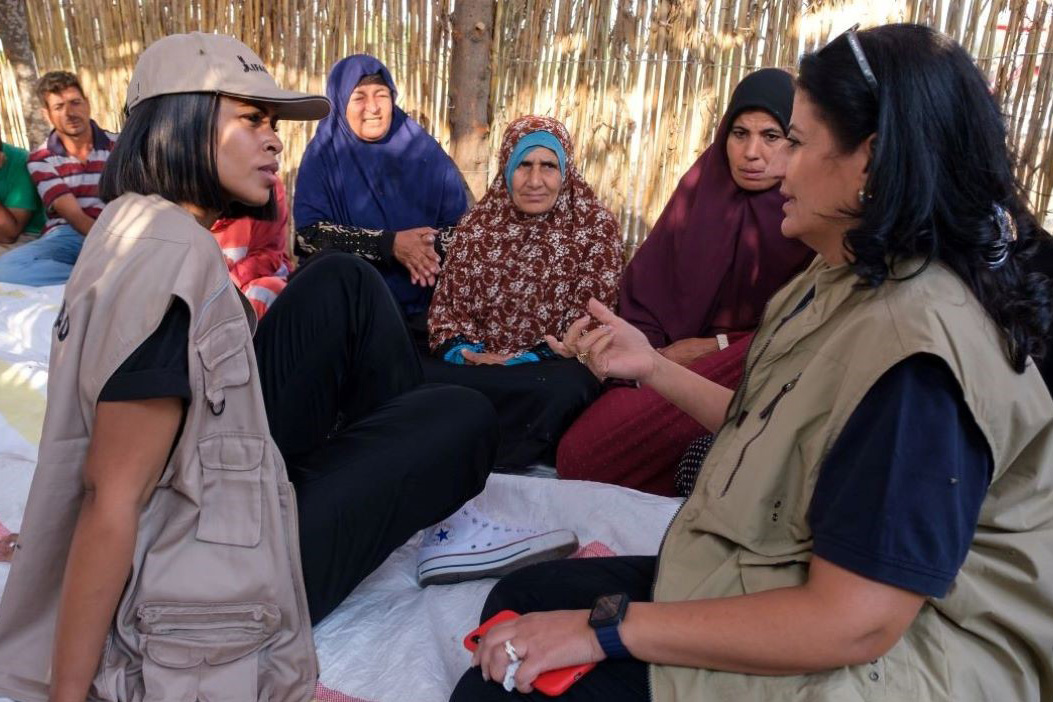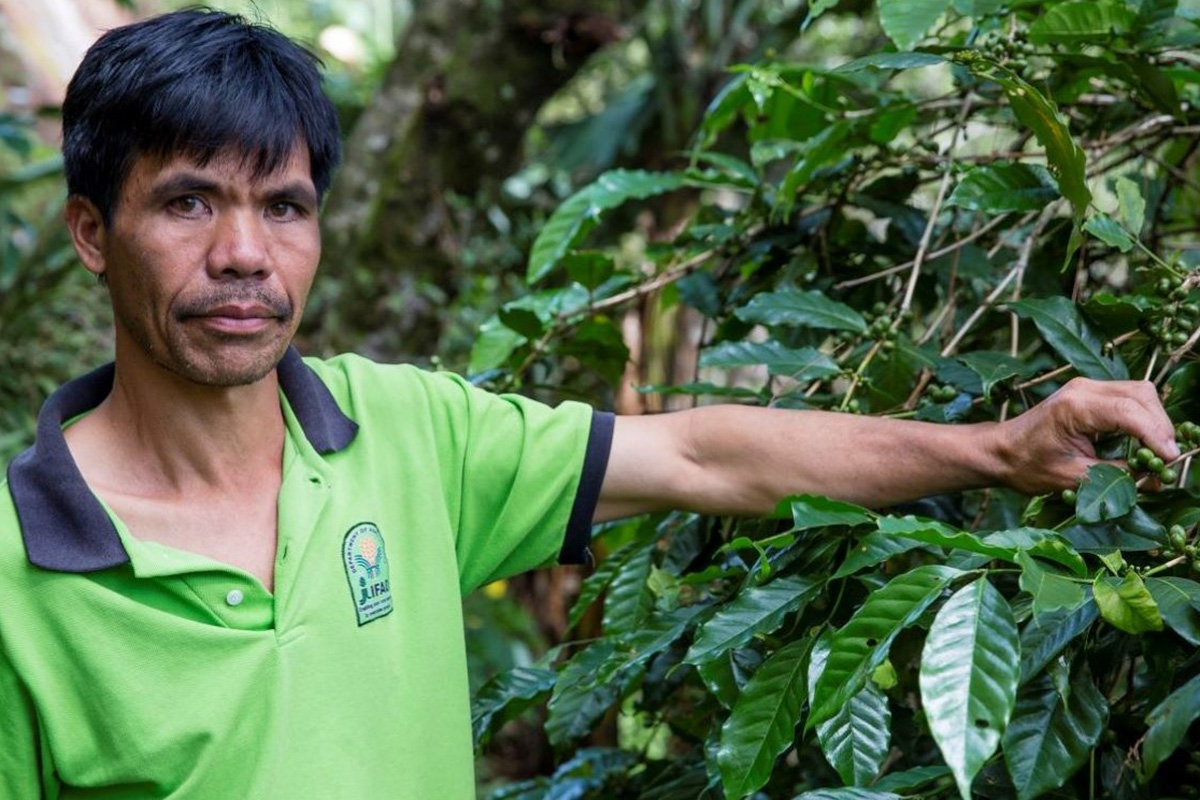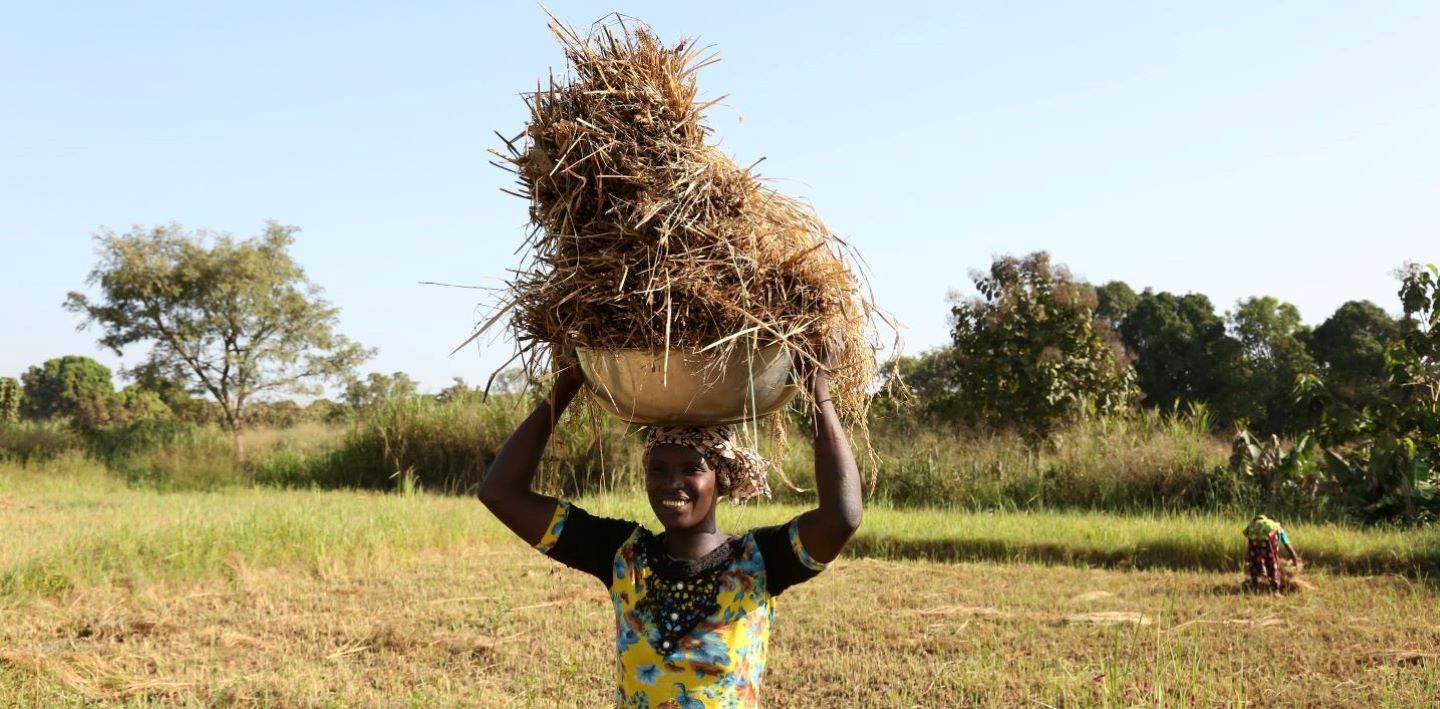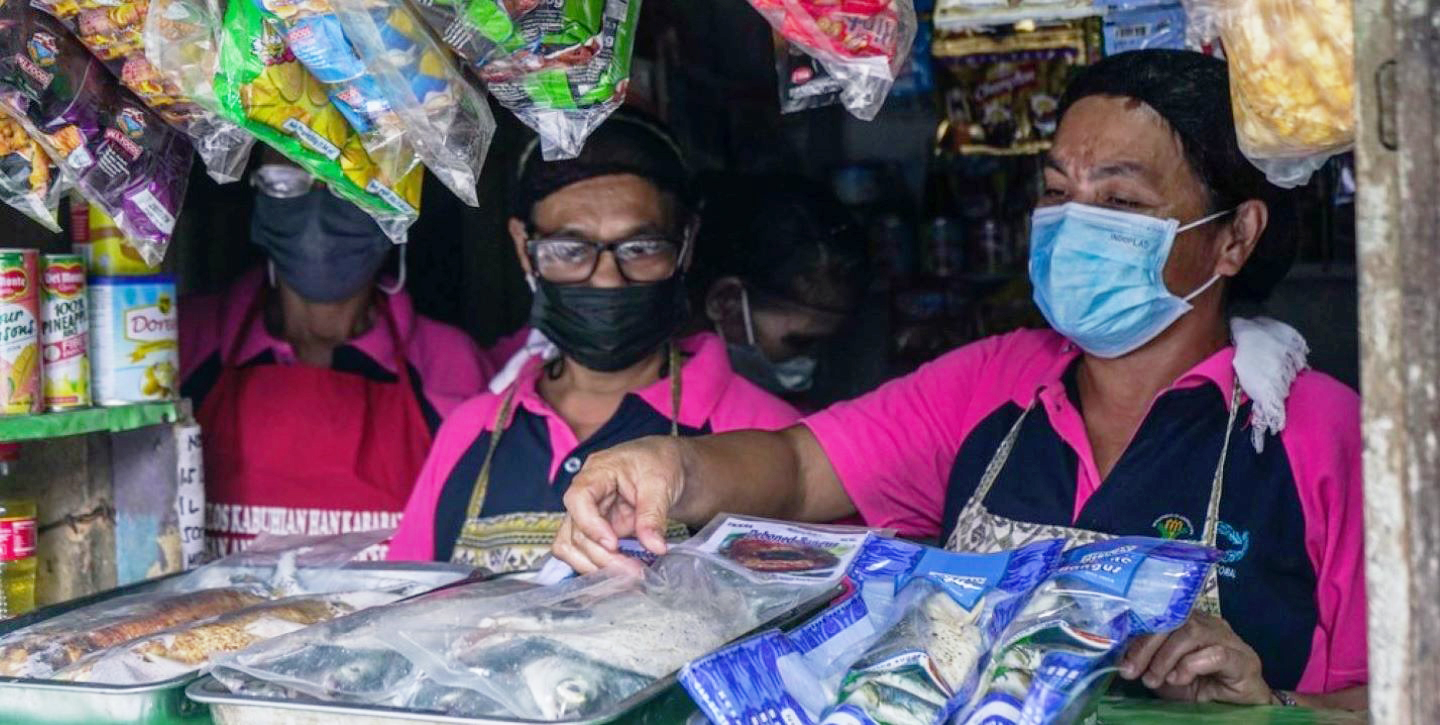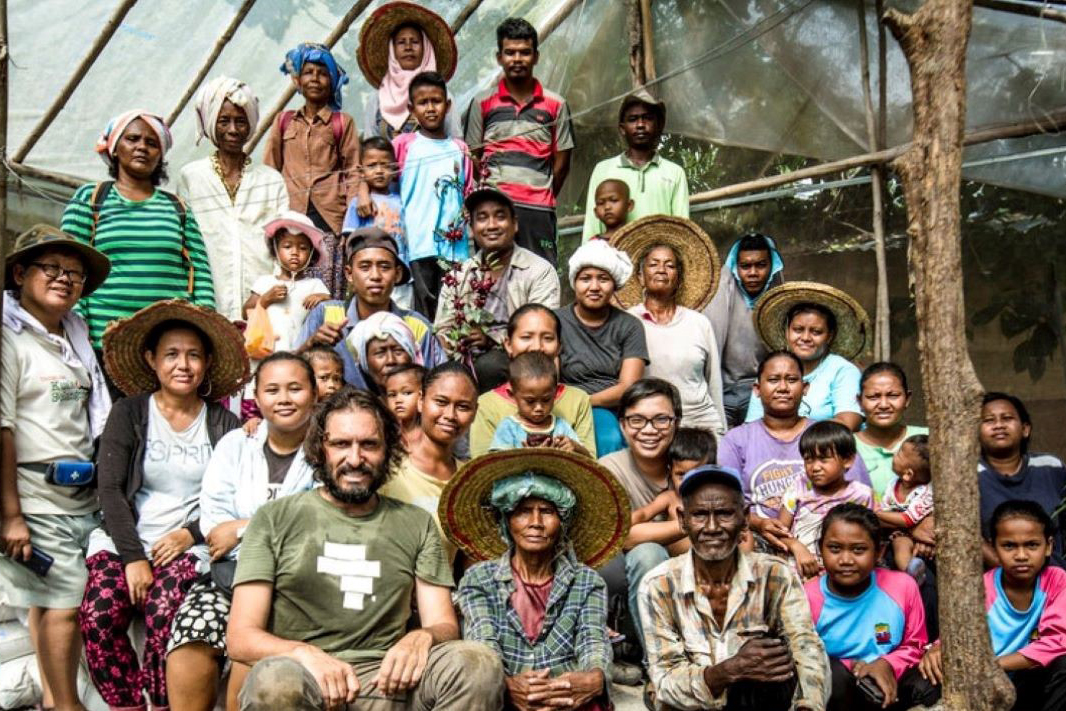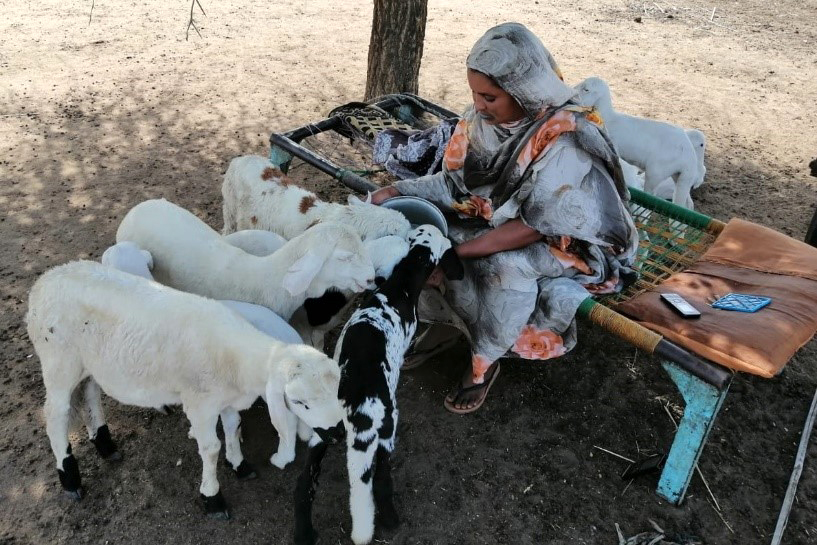From deforestation to the destruction of coral reefs, ecosystems across the globe are being decimated. The world’s most vulnerable populations are the ones paying the highest price, with rural people experiencing the effects on their livelihoods, their food security and their ways of life. Through IFAD’s Rural Poor Stimulus Facility and PROGRES, farmers have access to irrigation and seeds suitable to the region’s semi-arid conditions. By planting various types of trees, such as Pistachio, which have a strong root system, the soil is not swept away by rain, in turn conserving arid ecosystem and avoiding degradation
IFAD
For over 40 years, IFAD has been working with rural people, helping them eradicate poverty, conserve their environments and build flourishing societies—all the while feeding the world.
Climate change, environmental degradation and a growing population are exacerbating water scarcity. As the water cycle is disrupted, farmers are having to adapt and come up with inventive ways to harvest, store and use water. This helps them protect their crops and irrigate them when water is scarce. In fact, in Uganda, Burundi, India and Tanzania, water harvesting can increase crop production by 60 to 100 per cent. With 13 per cent of our work devoted to water, IFAD is helping smallholder farmers through simple but effective and climate-smart water infrastructure.
There are almost as many smartphones on the planet as there are people. From messaging, to maps, to mobile payments, it's almost impossible to imagine a world without internet or devices. Yet, for many women in developing countries, this is their reality. Here, men are twice as likely to use the internet than women. To empower rural women, and help them contribute to economic growth, access to the internet and digital platforms is vital. IFAD trains women in digital finance and marketing, and ensures they have access to the technology they need to connect to the rest of the world. Find out more in this story about taking tomato-growing to new heights in Pakistan, and texting for tulips in Bangladesh.
Despite the colossal damages to its agriculture caused by the war, the country is still committed to contribute to world food security and to empower small scale farmers.
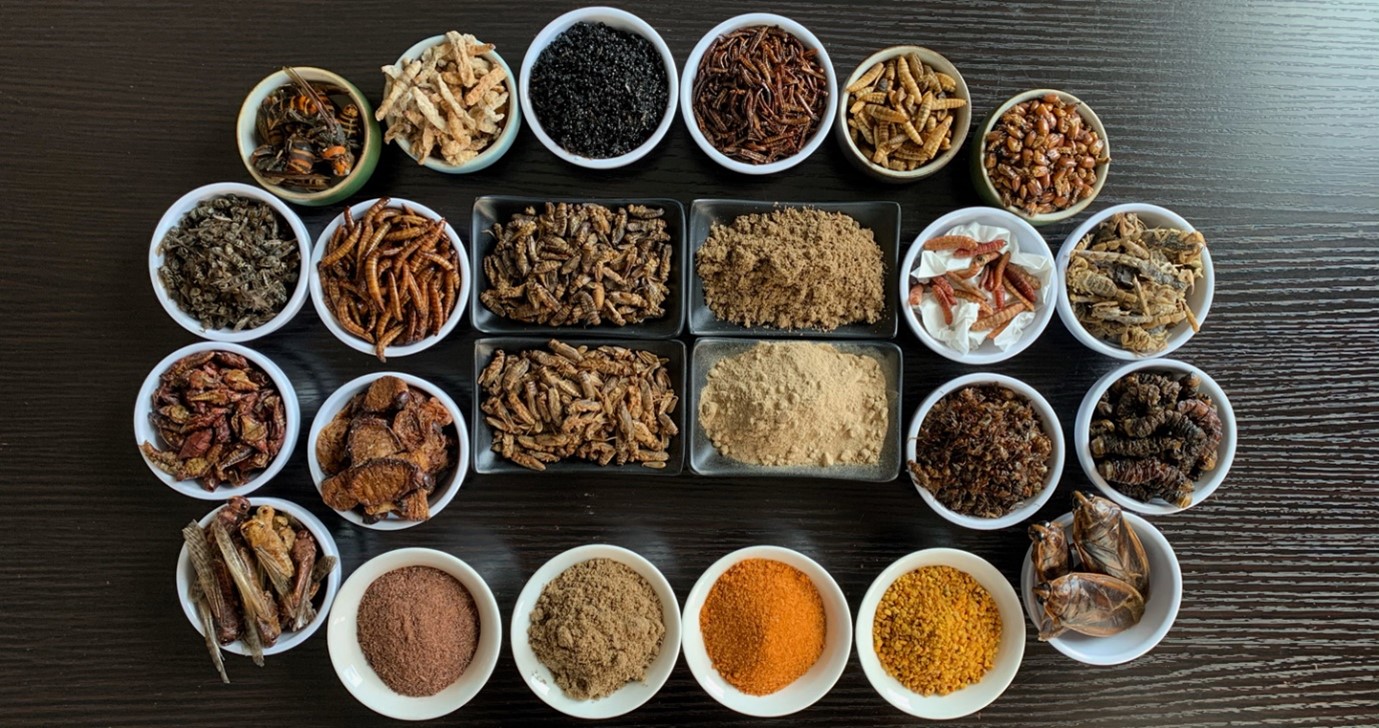
Why insects are the next global superfood
As climate change affects the distribution and availability of food, edible insects are a potential growth area, particularly as consumer demand rises. Insects are an essential food source for at least 2 billion people and given the low input costs and space required, even the poorest people in developing countries can collect, rear, process, sell, and eat insects. IFAD and the United States have partnered to help small-scale farmers in developing countries further reduce emissions while adapting to climate change.
With IFAD’s Indigenous Peoples’ Forum around the corner, IFAD focuses on native communities across the world. First up, we hear from IFAD’s Ilaria Firmian, a Senior Technical Specialist on Indigenous Peoples, then a discussion on gender and land rights, climate change and food with indigenous chefs, activists, and experts. We learn more about free, prior and informed consent and hear from IFAD Goodwill Ambassador Sabrina Dhowre Elba and climate reporter Qasa Alom in Bangladesh.
Photo: © IFAD/Michael Benanav
The land alongside the Nile has always been fertile, but sea levels rise as the earth’s temperatures rise, making this low-lying area one of the world’s three most vulnerable spots to climate change. It’s not just local people who are suffering the consequences. The Nile Delta is the breadbasket of Egypt, accounting for almost two thirds of the country's agricultural land and contributing to a fifth of the national GDP. Thanks to IFAD’s SAIL project, infrastructure, training and services are combined to not only protect the land, but also to improve the quality of previously infertile land.
2022 has been a busy year for IFAD. Investing in the world's poorest rural people, the UN agency continues to help them adapt to climate change and deal with global shocks such as the war in Ukraine and the cost-of-living crisis. The UN agency looks back on some of the themes that defined a year of dramatic change. Find out more about IFAD’s year in review.
80 per cent of the planet’s remaining biodiversity is located in Indigenous Peoples’ lands. Here are examples of how Indigenous Peoples are conserving biodiversity with IFAD’s support.
On top of the challenges that all smallholders face, farmers with disabilities also experience negative attitudes, stigma, discrimination, and a lack of accessibility. Climate change and other external shocks, such as the COVID-19 pandemic, tend to exacerbate these existing inequalities. IFAD is supporting farmers with disabilities - like Abu Koroma, Leonard Murani and Mariama Jalloh - to make a living from agriculture and build their resilience. This allows them to feed their families and sell the surplus. Watch the video to find out more.
The food we eat and how we produce it is evolving. IFAD explains what our plates might look like in the future and explore how the world’s small-scale farmers are revolutionizing what we eat.
How are agri-small and medium-sized enterprises (SMEs) affected by the current onslaught of global crises? What is IFAD doing to support agri-SMEs during this volatile time?
Indigenous peoples use language in a powerful way to describe Mother Nature. IFAD presents five unique words indigenous peoples use to describe the natural environment.
Farmers and pastoralists in the small village of Yarwa, in Sudan’s semi-arid region, face several threats to their way of life. Climate change and environmental degradation are damaging lands, destroying forests, and increasing the risk of drought, while the growth of commercial mechanized agribusiness is reducing their access to land. For a long time, small-scale farmers and pastoralists didn’t have any way of accessing finance to grow their businesses. And women, especially, were held back by societal norms, which gave them little say in financial decisions. Today, however, the 13 members of the Alwifaq women’s savings and credit group are charting a way to a better, more resilient future for their community.

